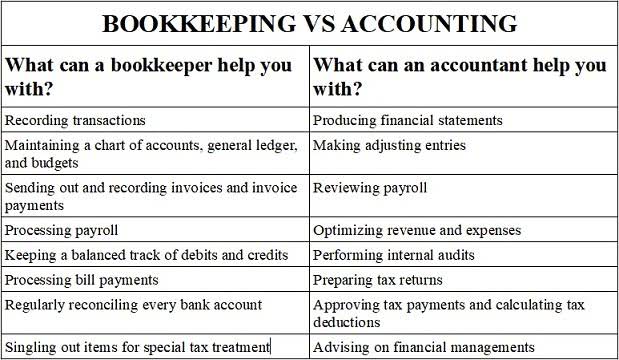
Juni helps businesses in digital commerce manage their cash flow, track their expenses and optimise their profits with features that are specifically designed with ecommerce companies in mind. This becomes even more challenging the larger your business becomes and the more vendors you have to pay. You can avoid most of that frustration and wasted time with the right spend management software. By choosing a software solution that’s a good fit for you, you’ll make your business more agile, resilient and competitive. Meanwhile, you’ll get back more time in the day to focus on what you most love about running your company, whether that’s marketing your product, interacting with customers or finding ways to scale. As your small business grows, manually managing accounts payable (AP) processes becomes more challenging, time-consuming and error-prone.
Invoice financing (a.k.a. accounts receivable financing)
- If your business gets steady revenue from invoices but doesn’t collect payment right away, invoice financing might be for you.
- Hear how their CEO explains our commitment and innovation in delivering the insights and solutions they need for success.
- The lender is now responsible for collecting the payment from the borrower’s customers.
- Invoice financing companies advance 80% to 95% of the total invoice value upon approval.
Your bankers and other lenders (including those providing invoice financing!) can be reassured about the financial stability of your company, and more inclined to guarantee financing. SME invoice financing is one of the non-banking funding sources which are filling the need for capital for smaller businesses or new businesses without a long track record. Lenders in this market accept invoice financing applications from newly set up small businesses and will consider the current sales volume and its growth potential as significant factors for approving financing.
Business line of credit
Invoice financing is a form of short-term borrowing in which your business borrows money against the amount due on invoices you’ve issued to your customers. While you can manually manage your accounts payable process, this approach can be time-consuming and error-prone. A better way to keep track of accounts payable is by using specialised accounts payable software that tracks and pays your invoices for you.
Frequently asked questions about invoice factoring
The traditional route of invoice financing is, very simply, an advance on your business’s outstanding invoices. It works by the invoice financing company giving your business up to 100% of your current outstanding receivables upfront. If you’re looking for a fast way to get a short-term type of financing, invoice finance can be a solid option.

Some of these duplicate payments are resubmitted intentionally for nefarious reasons. However, legitimate invoices are often resubmitted for payment accidentally and processed a second time due to flaws in a company’s invoice-tracking system or mistakes resulting from a manual entry process. Naturally, businesses with automated detection solutions in place are far more likely to flag and stop these transactions from occurring.
Typical interest rates range from 1.5% to 3% over Bank of England base rate and are calculated daily. Credit management fees typically https://www.bookstime.com/ vary from 0.25% to 0.5% of turnover. There may also be other costs – such as an origination fee for processing the loan.
Repayment terms start when you draw funds and are typically short from six to 24 months. It offers payment flexibility because you only draw the amount you need and pay interest on the funds you use. Some companies will look at your personal or business credit and financials. Some will invoice financing be less concerned with that and more concerned with the number of outstanding invoices. It’s best to do your due diligence and research what the requirements are for each specific lender. Invoice financing, also known as receivable financing or invoice trading, is a form of a loan.
What is an accounts receivable line of credit?
Because factoring agents take over the company’s sales ledger and assume responsibility for chasing customers for payment, their administration costs are higher than those for invoice financing. Invoice financing can be an excellent solution for small businesses facing cash flow issues due to delayed customer payments. It provides immediate liquidity using outstanding invoices as collateral, thereby helping businesses manage expenses or seize growth opportunities. It’s typically faster and more accessible than traditional loans, with approvals usually granted within days. When businesses sell products or services, they often extend credit to customers such as retailers or wholesalers.
- Invoice financing is usually a better option for businesses that want to maintain control over invoices and deal with their customers directly.
- Let’s dive into what you need to know about invoice financing, including what it is, why you might use it, and its advantages and drawbacks.
- Call us or apply online now to receive quotes for invoice finance tailored to the specific demands of your business.
- Invoice discounting is a type of invoice financing where a business retains control over collections and customer relationships.
- These fees may be called a processing fee, discount rate or factoring rate and are usually a percentage of the invoice amount.
The invoice financing process
The cost is the same, even if the invoice takes more than 30 days for payment. Register with us to receive a quote for costs and services tailored to your business needs. While often lumped in with loan options, invoice factoring isn’t technically a loan. When you sign on to work with a factoring company, they pay you for the invoice and take on the responsibility of collecting payment from the client.

Once a vendor has been selected, implement processes to protect invoice payments from supply chain attacks. Our invoice factoring calculator can help you estimate the cost and benefits of using invoice factoring services. Most business decisions involve trade-offs, and invoice factoring is no exception. At Swoop we want to make it easy for SMEs to understand the sometimes overwhelming world of business finance and insurance.
